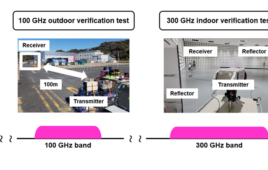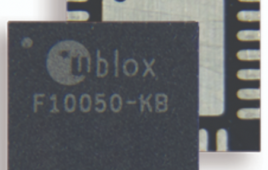Since the rise of computers and the internet, people have been able to find connections in the most unlikely of places. With all the good that the internet has done, it also has a dark side: the dark web. The dark web is cloaked in secrecy, and only those who know how to get there can find it. A group of French engineers has identified a way to navigate the dark web, a discovery they aren’t willing to share lightly.
Nicholas Hernandez, co-founder and CEO of Aleph Networks, says, “We insist on this ability to say ‘no,'” Aleph has consistently refused 30 to 40 percent of licensing requests for its “Google of the dark web,” inherently due to reviews produced by ethics committees and input from government clients.
The average internet user will most likely never find themselves stumbling across the dark web. For those in the know, finding the dark web is done by typing the exact URL string of characters into the search bar. In other words, you can’t find dark websites by doing a simple search. People on the dark web can hide behind layers of security and secrecy using available software such as Tor or I2P.
In addition to protecting identities for sordid deeds, the dark web is a place rife with drug and weapon sales, human trafficking, and terrorist communication. Aleph’s co-founder, Celine Haeri, utilized her software to search for “Glock,” the Austrian pistol maker, and multiple websites emerged offering covert gun sales. Furthermore, a search for Caesium 137, a radioactive element that could be used to create a “dirty” nuclear bomb, revealed 87 dark websites, with other pages giving instructions on how to make homemade explosive devices.
To make matters worse, “Some even advertise the stars they’ve gotten for customer satisfaction,” Hernandez says.
Within the past 5 years, Aleph has indexed approximately 1.4 billion links and 450 million documents across 140,000 dark websites. As of December, the software had located 3.9 million stolen credit card numbers.
Aleph has had several close calls with bankruptcy in the beginning before finding a strong client in the French military’s weapon and technology procurement agency. “They asked us for a demonstration 2 days after the Charlie Hebdo attack,” Hernandez says, referring to the 2015 massacre of 12 people at the satirical magazine’s Paris offices. “They were particularly receptive to our pitch which basically said, if you don’t know the territory—which is the case with the dark web—you can’t gain mastery of it,” Haeri adds.
Governments and security agencies have been trying to furtively navigate the dark web for years. The ability to remain under secrecy when scanning the dark web for illicit trafficking or preventing terrorist activities is like the holy grail for security services. The U.S. government’s Defense Advanced Research Projects Agency (DARPA) has been working on a similar project, called Memex.
In the coming months and years, Aleph plans on adding artificial intelligence capabilities to the software, which would recognize images including rifles or child abuse victims, or alert businesses to potential copyright infringement.
As more businesses and governments begin to use Aleph’s software, the further the risk grows for criminal organizations to gain access to the search engine. Aleph stands firm in their decision to be vigilant in mandating clear guidelines for users. Its choice to be limiting in who acquires access to their software is the best way to ensure the software doesn’t fall into the wrong hands.




